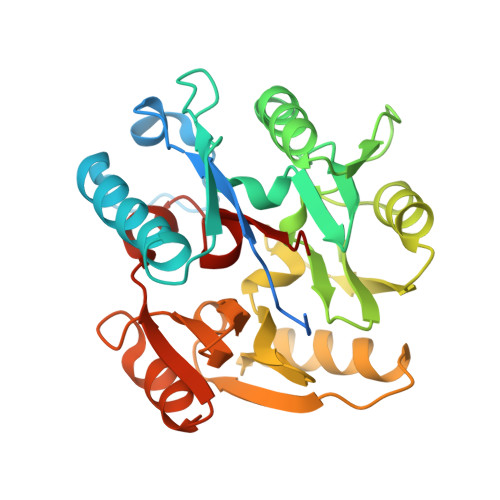Characterization of C-Alkyl Amidines as Bioavailable Covalent Reversible Inhibitors of Human DDAH-1.
Lluis, M., Wang, Y., Monzingo, A.F., Fast, W., Robertus, J.D.(2011) ChemMedChem 6: 81-88
- PubMed: 20979083
- DOI: https://doi.org/10.1002/cmdc.201000392
- Primary Citation of Related Structures:
3P8E, 3P8P - PubMed Abstract:
C-Alkyl amidine analogues of asymmetric N(ω),N(ω)-dimethyl-L-arginine are dual-targeted inhibitors of both human DDAH-1 and nitric oxide (NO) synthase, and provide a promising scaffold for the development of therapeutics to control NO overproduction in a variety of pathologies including septic shock and some cancers. Using a two-part click-chemistry-mediated activity probe, a homologated series of C-alkyl amidines were ranked for their ability to inhibit DDAH-1 within cultured HEK 293T cells. N⁵-(1-Iminopentyl)-L-ornithine was determined to be the most potent compound in vitro (K(d)=7 μM) as well as in cultured cells, and the binding conformation and covalent reversible mode of inhibition was investigated by comparison of interactions made with DDAH-1 and a catalytically inactive C274S variant, as gauged by X-ray crystallography and isothermal titration calorimetry. By interrupting the ability of the inhibitor to form a covalent bond, the contribution of this interaction could be estimated. These results suggest that further stabilization of the covalent adduct is a promising strategy for lead optimization in the design of effective reagents to block NO synthesis.
- Department of Chemistry and Biochemistry, Institute for Cellular and Molecular Biology, University of Texas, Austin, 78712-0165, USA.
Organizational Affiliation:

















